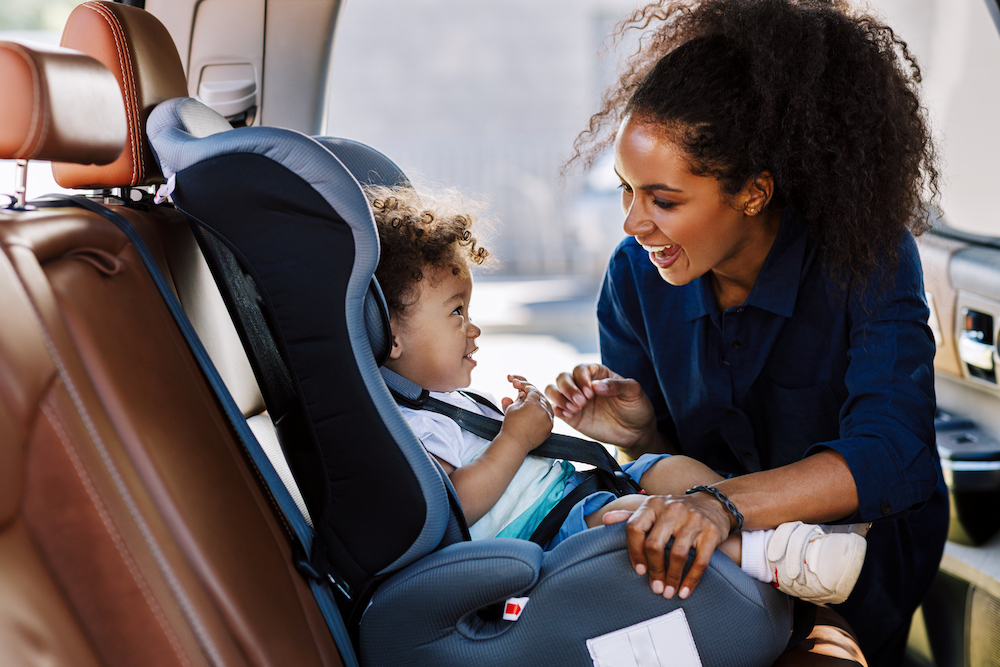Summer is almost here and you might have travel plans with the family. But if your child has motion sickness, that can make your trip challenging! Motion sickness happens when the brain receives conflicting signals from the motion-sensing parts. For an example, your child may be sitting in the backseat of a car and cannot see the outside, but their ears can sense the motion of the moving car. This kind of inconsistent messaging results in confusion for the brain and can activate a response that causes sickness.
Signs and symptoms of motion sickness include stomach queasiness, cold sweats, fatigue, and loss of appetite. In some cases, your child might vomit. Most children under age 2 don’t experience car sickness, but children between ages 3 and 12 are the most susceptible.
Car sickness doesn’t mean all of your travel plans need to be cancelled. If your child gets sick, the best thing to do is to take frequent breaks during the trip. When the car stops moving, the sickness goes away. Allow your child to walk around for a bit before resuming your trip. What can also help is giving your child a light snack before your travel since hunger can worsen symptoms. It’s good for them to eat something within three hours before traveling. While in the car, playing music or engaging in conversations can distract them from feeling ill. You can also encourage them to look at things outside of the car instead of reading a book, playing electronic games, or watching something on a screen device. Providing adequate air ventilation can also prevent sickness.
If you try all of the above methods and your child still gets motion sickness, stop the car and have your child lie on their back for a few minutes with their eyes closed. Place a cool towel on their forehead for relief. You may want to consider giving them medication. But, it’s important to know that while the medication may help, it can also cause side effects like drowsiness, dry mouth and nose, or blurred vision. Although some of these medications for motion sickness don’t require prescription, we advise you to first talk to our pediatrician before administering anything. Furthermore, if you notice your child experiencing symptoms of motion sickness during non-movement activities, especially if the symptoms include headaches and difficulty seeing, hearing, walking, or talking, it’s important to contact our doctor. These symptoms could be the result of something else.
Car sickness doesn’t always last forever. The more your child travels in the car, the more they will get used to the motion. If you have any questions or concerns, please contact our office.




